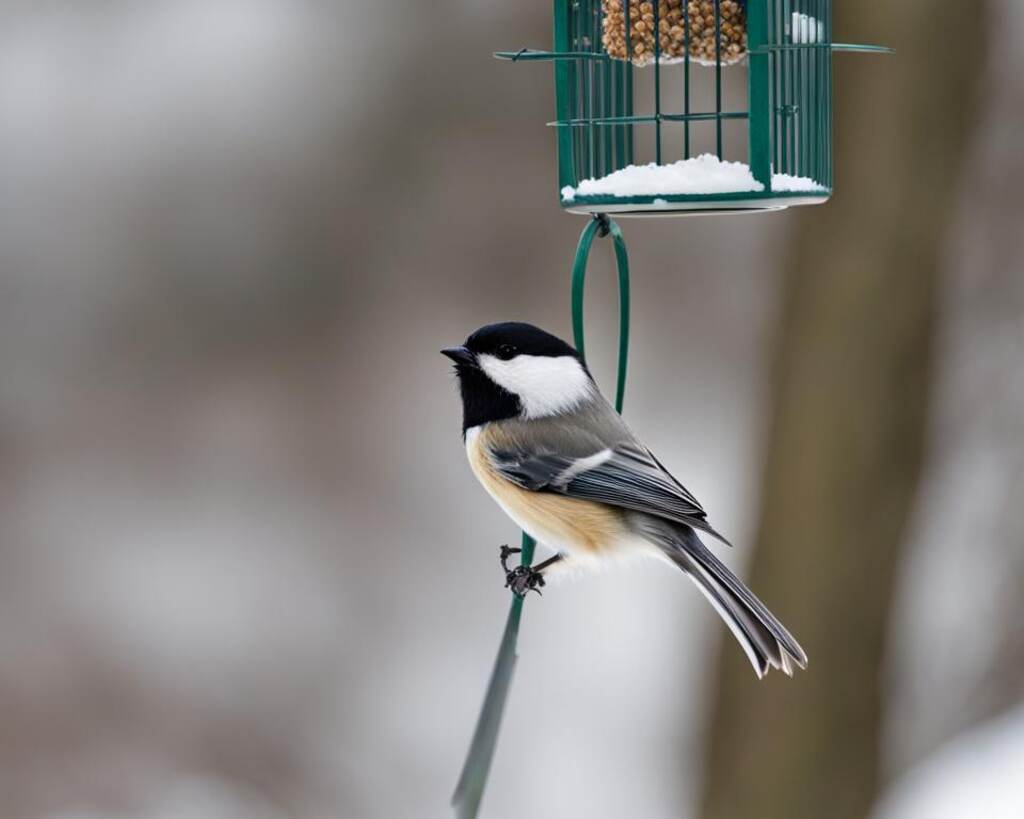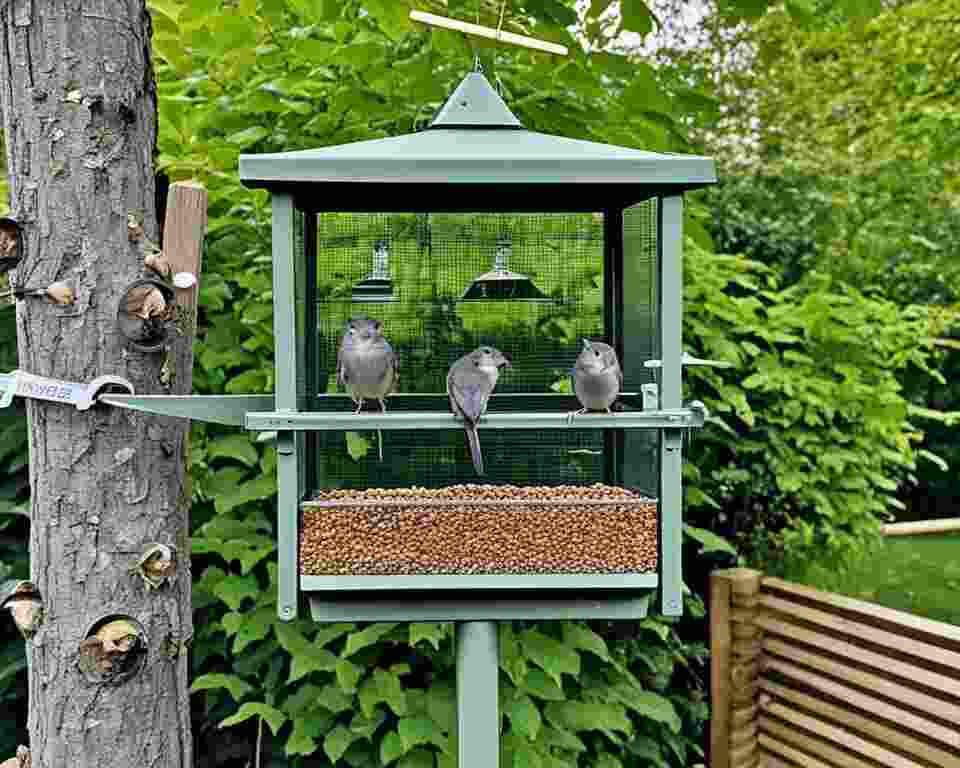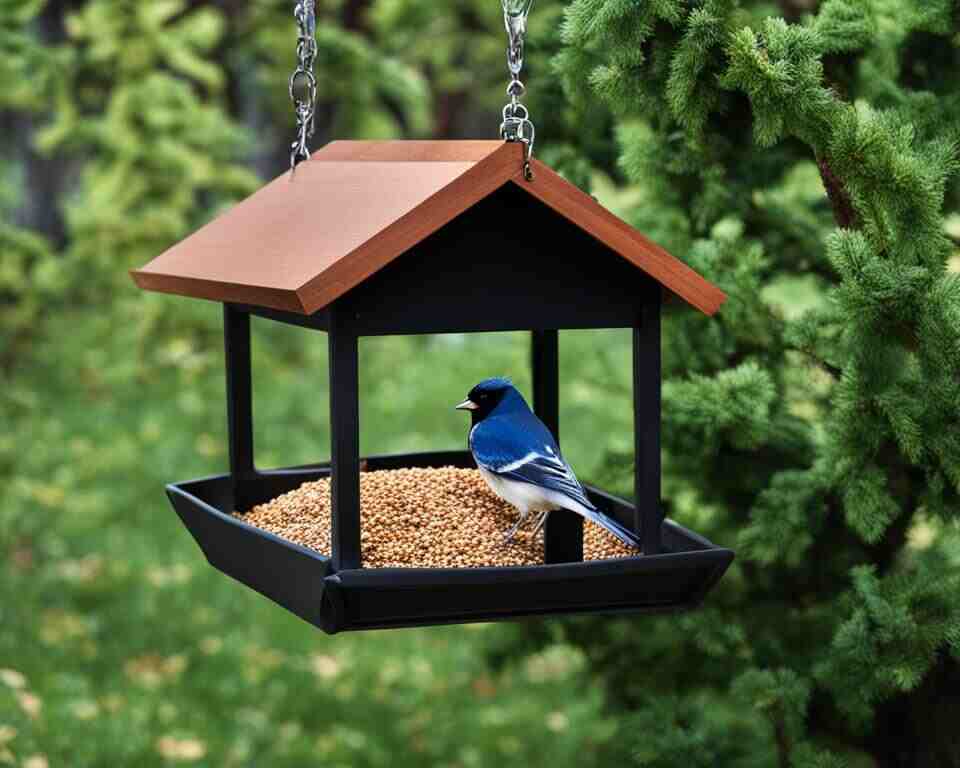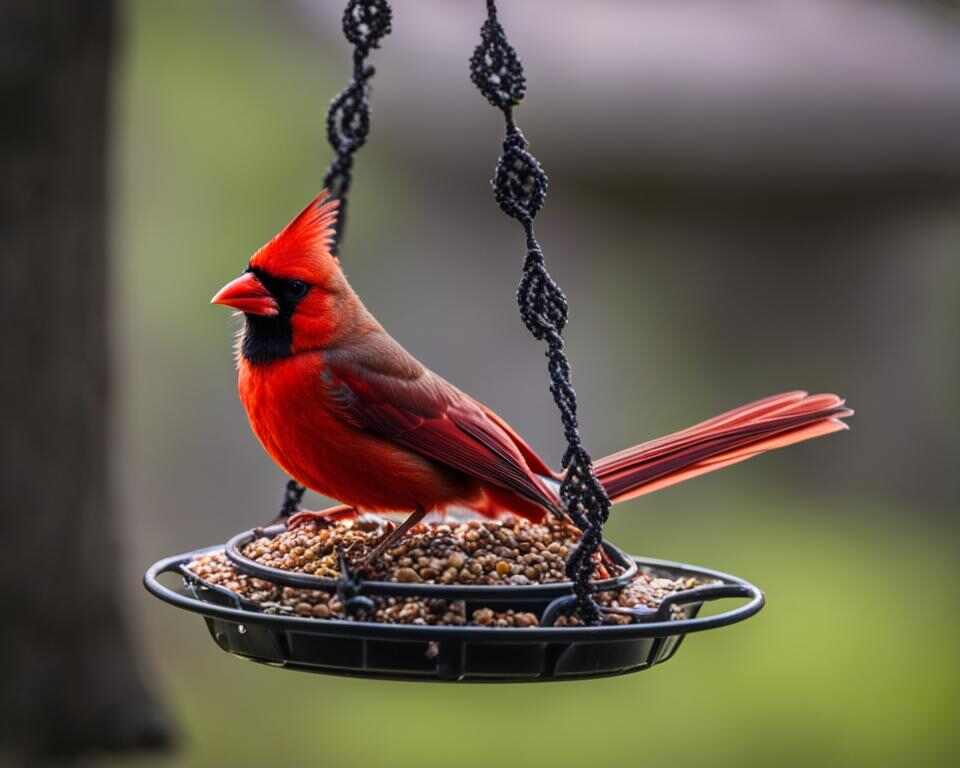Enjoying the beauty of bird feeding in our gardens is a delight, but it’s crucial to consider the potential risk of attracting rats.
With their keen sense of smell and love for bird seeds, rats can turn our bird feeders into an inviting buffet, posing a threat to cherished birds and causing property damage.
This article offers practical tips and strategies for bird feeding without the unwelcome presence of rats, ensuring a safe and enjoyable experience.
Table of Contents
Key Takeaways:
- Choose bird feeder designs that deter rats and limit access to bird seeds.
- Implement rodent deterrents such as baffles to prevent rats from climbing up to the feeder.
- Regularly clean the feeding area and remove spilled or leftover seeds.
- Store bird seeds in secure containers to prevent rats from accessing them.
- If you have a severe rat problem, consider seeking professional pest control services.
Stealthy Strategies for Rat-Proof Bird Feeders
When it comes to bird feeding, keeping rats away from bird feeders is essential to protect both the birds and your property. Fortunately, there are effective strategies and rat deterrents available to ensure a rat-proof bird feeding experience.
To ensure rats stay away from your birdseed, it’s vital to choose the right feeder. Opt for feeders that are specifically designed to be rat-proof, with features such as narrow openings or mesh enclosures that allow smaller birds to access the seeds while keeping rats out.
A weight-sensitive feeder serves as an excellent tool to prevent rats, squirrels, and other rodents from accessing the food. These feeders operate by closing a small hole when a substantial weight is detected on the feeder.
Consider using metal or glass feeders, as they are effective in preventing rats from reaching the birdseed. Unlike plastic, these materials pose a more significant challenge for rats and squirrels attempting to chew through.
Installing birdseed catchers or trays underneath the bird feeders can help prevent seeds from falling on the ground, which can attract rats. These catchers can easily be cleaned and emptied regularly to avoid any accumulation of birdseed that might entice rodents.
Implementing rodent deterrents, such as baffles, is another effective strategy for keeping rats away from bird feeders. Baffles are cone-shaped devices that can be placed above or below the feeder. They make it difficult for rats to climb up and access the birds’ food, ensuring that the feeder remains rat-proof.
Exclusion techniques can also play a significant role in rat control for bird feeders. Hanging feeders from poles or hooks can prevent rats from climbing up and reaching the birdseed. Additionally, installing a birdseed catcher just beneath the feeder can serve as an extra protective barrier against rats.
| Rat-Proof Bird Feeder Strategies | Efficiency | Cost |
|---|---|---|
| Choosing the right bird feeder design | High | Varies |
| Installing birdseed catchers or trays | Medium | Affordable |
| Implementing rodent deterrents like baffles | High | Affordable |
| Using exclusion techniques like hanging feeders | High | Varies |
How to Feed Birds Without Attracting Rats
When it comes to bird feeding, maintaining a clean environment is essential in preventing rats from being attracted to your feeders. Here are some strategies to help you feed birds without attracting rodents:
Choose the right bird feeder design: Select bird feeders with narrow openings, mesh, metal, or glass designs to deter rats. Weight-sensitive feeders effectively close access upon detecting substantial weight. Choose designs that make it difficult for rats to reach the seeds, and avoid trays to minimize the risk of rat pilfering.
Regularly clean the feeding area: Keeping the feeding area clean is vital in deterring rats. Regularly remove spilled or leftover seeds, as they can attract rodents. Consider using a seed tray or catcher to minimize spillage and make cleaning easier.
Store bird seeds properly: To prevent rats from accessing bird seeds, store them in galvanized metal bins with secure lids. This ensures that the food remains protected and inaccessible to rodents.
Implement rodent deterrents: Installing rodent deterrents can further discourage rats from approaching the feeder. Consider setting up baffles or installing trays beneath the feeders to make it more challenging for rats to access the seeds.
If you follow these tips in maintaining a clean feeding environment, managing leftover seeds and spillage, and implementing rodent deterrents, you can successfully feed birds without attracting rats to your property.
| Feeding Birds Without Attracting Rats | Description |
|---|---|
| Choose the right bird feeder design | Select feeders that are difficult for rats to access. |
| Regularly clean the feeding area | Remove spilled or leftover seeds to deter rats. |
| Store bird seeds properly | Use galvanized metal bins with secure lids to prevent rat access. |
| Implement rodent deterrents | Set up baffles or trays to discourage rats from approaching feeders. |
Professional Insight: When to Call for Expert Pest Control
If you are dealing with a severe rat problem, it may be necessary to seek professional pest control services. Pest control experts have the knowledge and experience to effectively handle rat infestations. They can conduct inspections, identify entry points, and implement effective rat control measures. Calling for professional pest control is the safest and most efficient way to deal with a rat problem.
Conclusion
Feeding birds is a beloved hobby for many, but it can unintentionally attract rats to your property. However, by implementing the strategies discussed in this article, you can safely enjoy bird feeding without luring rats.
One key aspect is choosing the right bird feeder design. Opt for feeders that are difficult for rats to access, such as those with small openings or built-in baffles. Additionally, installing birdseed catchers or trays can prevent seeds from falling onto the ground, removing a potential food source for rats.
Maintaining a clean feeding environment is essential in deterring rats. Regularly clean the feeding area, removing any spilled or leftover seeds that can entice rodents. Properly storing bird seeds in galvanized metal bins with secure lids will also help prevent rats from accessing the food.
Should you find yourself dealing with a severe rat problem, it is advisable to seek the assistance of professional pest control services. These experts have the knowledge and experience to effectively handle rat infestations, conducting inspections, identifying entry points, and implementing measures to eliminate and prevent rats from returning.
By following these tips and incorporating these strategies, you can enjoy the pleasure of bird feeding while keeping your home rat-free. Remember to choose the right feeder, maintain a clean feeding environment, and seek professional help if needed. Feeding birds without attracting rats is possible, and you can make it a reality!





